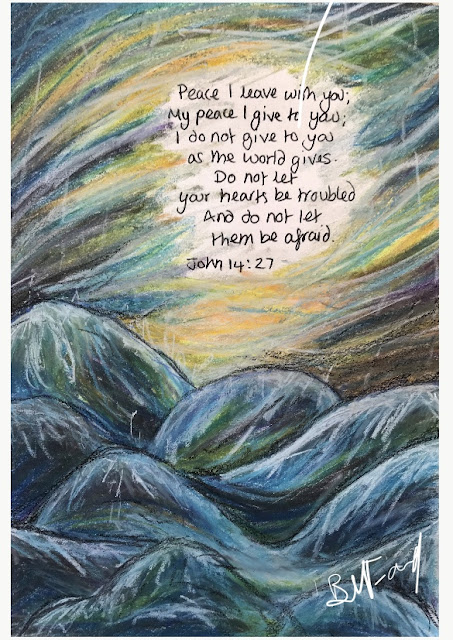This year, I will have been a vicar for 45 years. I was shocked to find, from a very rough calculation, that I must have taken close on to 3000 funerals! It is true that, as a vicar, you develop your own ways of doing things, but I can honestly say that every funeral for me has been different, unique. Because each person is. I have therefore tried to ensure that each service is be properly prepared for and offered, as a way of commemorating that life and holding them before God. Whether he or she knew it or not, their life was God-given and they were loved from beginning to end - and beyond. And every service is as much about the family and friends, as it is about the deceased. Even now, I find I will vary a service, include new material, as appropriate for the occasion. Don't tell the bishop, but I don't stick much to the set order of service!
So it has not been difficult for me to adapt to the latest regulations. In some ways, these smaller, shorter, quieter funerals have been better in their own way. Yesterday, I did a burial at one of our most beautiful churchyards, and I overheard one of the mourners say she had actually preferred it to the more traditional way: the whole service conducted outside, in warm sunshine, in a more intimate gathering. (It would, of course, have been a very different matter in the depths of winter!) I think it can assist the family if their grief is more private, rather than before a mass of extended family, friends and well-wishers - much as their love and support is appreciated. Then, as many families are proposing, if a big thanksgiving/memorial service is planned for later on, they may be more ready to celebrate the life of their loved one, being further along the journey of grief.
It is quite common these days for a family member or friend to offer a tribute, to reminisce about the person who has died. In the context of a smaller gathering this has a greater poignancy: on two or three occasions lately, as the speaker has fought back their tears, family members have called out words of encouragement to help them through. That would be less possible in a crowded church or crematorium chapel, where a certain amount of decorum is required.
Another thing that has happened, because not many are allowed to attend a funeral, is that people have come out onto the streets in town or village to applaud, or stand in respectful silence as a funeral cortege has passed by. I understand this used to happen far more in former times, than now. But the custom could return - though it is more possible at the moment with more people being at home. It is also a special way of expressing community.
Come the autumn, some vicars will be very busy taking memorial services, I think! Although not all families will want a religious aspect to their remembering. It will be interesting to see which of these new funeral practices become customary in future.
Today's piece of art comes from Becky, who lives in Sheffield. The words are words of Jesus. Becky comments, I drew this picture the first day my brother was in hospital last week... I have often seen this Bible verse illustrated with tranquil scenes, but I feel that the peace that Jesus gives us is especially precious when we’re in the middle of the storm.




